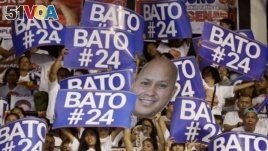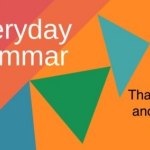05 November, 2019
A rights group reports that governments and individuals have sought to influence elections online in 26 of 30 national elections it studied.
Freedom House released the report about online influence on Monday – one day before elections in many parts of the United States. Some of the group's financing comes from the U.S. government.
The new report warns that internet-based election interference has become an important method for those seeking to attack democracy. It found that disinformation and propaganda were the most popular tools used to influence elections.

Supporters raise their posters to cheer their senatorial candidate, former national police chief Rogelio "Bato" Dela Rosa during the last campaign rally by the administration for the midterm elections in suburban Pasig city east of Manila, Philippines, Ma
Freedom House studied how domestic governments have tried to influence their citizens. It also examined partisan actors who use online networks to spread misleading ideas. It said that such individuals often work with popular media personalities and business leaders.
"Many governments are finding that on social media, propaganda works better than censorship," said Mike Abramowitz, the president of Freedom House. He added that "authoritarians and populists around the globe" are using human nature and computer programs to harm free and fair elections.
Some of those seeking to influence elections had developed methods to defeat efforts by technology companies to fight false or misleading information, the report said.
For example, it noted that in the Philippines, candidates paid people on social media to support their campaigns on Facebook, Twitter and Instagram.
The report noted that online disinformation was widely used during several political events in the United States, such as the 2018 elections. Another example was the U.S. Senate hearings for Supreme Court nominee Brett Kavanaugh.
Freedom House noted a rise in the number of governments using bots and false accounts to shape online opinions and hurt opponents. Such behavior was noted in 38 out of 65 countries that the report discussed.
Social media was also being increasingly used to watch citizens. The report said at least 40 countries have set up high-level social media monitoring programs.
Allie Funk is one of the writers of the report, called "Freedom on the Net 2019." She said the report had two main themes. One is efforts by governments to influence their own elections. The other is their efforts to "monitor their citizens."
But Funk added that government efforts to block the opposition sometimes have unexpected results. She said in Russia, online efforts to limit opposition candidates led to protesters' use of social media to organize.
I'm Mario Ritter Jr.
Elizabeth Culliford reported this story for Reuters. Mario Ritter Jr. adapted it for VOA Learning English with additional material from VOA News. George Grow was the editor.
_____
Words in This Story
domestic – adj. of or coming from within a country
partisan – adj. strongly supporting one leader or party over another
network – n. an interconnected group of people or organizations
censorship – n. a method of removing material from books, movies and other forms of communications thought to be wrong or bad
authoritarian – adj. expecting or requiring people to obey rules and laws and to not have personal freedom
bots – n. computer programs designed to act like real people
account – n. a record or statement of an event or experience
theme – n. an idea or image that appears again and again
monitor – v. to watch or observe someone or something
We want to hear from you. Write to us in the Comments section, and visit 51VOA.COM.













